Colin Pitchfork parole hearing: How to assess a killer's risk
- Published
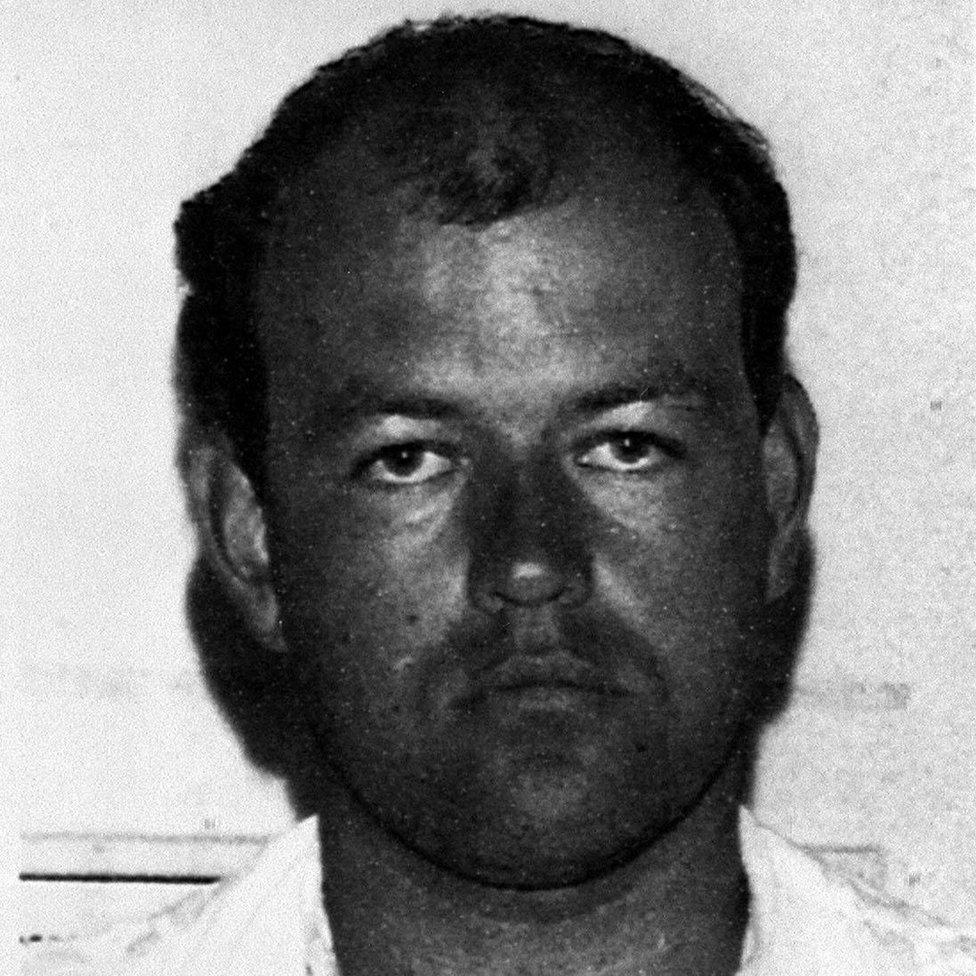
Colin Pitchfork was the first person convicted based on DNA profiling after he raped and murdered two Leicestershire school girls
Thirty years ago, brutal child killer Colin Pitchfork became the first person to be convicted using DNA profiling.
The rapes and murders of Lynda Mann and Dawn Ashworth, both 15, were all the more shocking because Pitchfork led an apparently normal family life. Now a parole board is due to consider whether he should be released from prison. So how do you decide a sadistic killer is no long a danger to society?
"He didn't just take Lynda's life, he took mine as well. He mustn't be allowed to do it again and he will if he is allowed freedom," said Lynda's mum Kath Eastwood.
"There's no remorse - what he did proves what kind of a killer he is and he won't change."
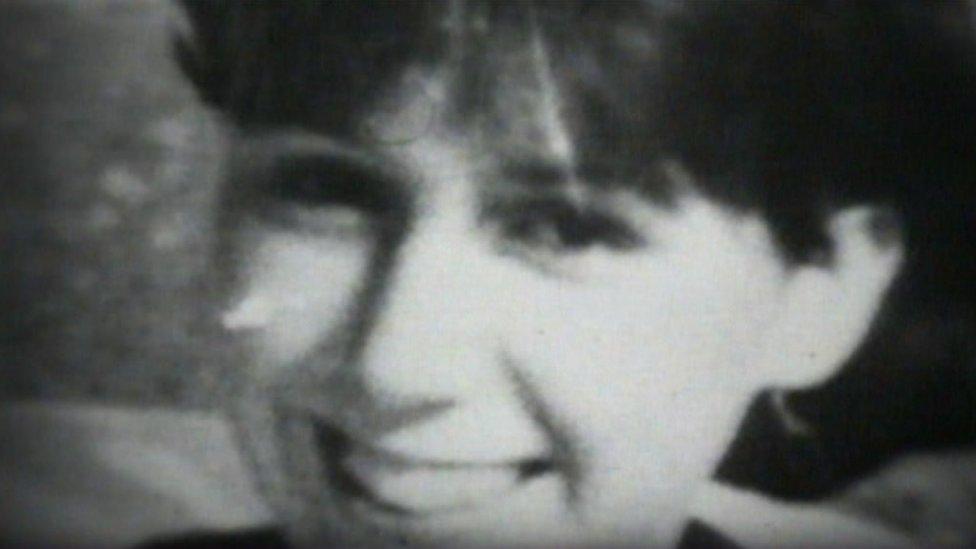
Lynda Mann was just 15 years old when she was raped and murdered walking in her home village of Narborough
On a cold November day in 1983, Colin Pitchfork left his baby son sleeping in the back of his car and raped Lynda as she made her way to a friend's house in the Leicestershire village of Narborough. He then strangled her with her own scarf, drove home and put his son to bed.
Three years later, less than a mile from the spot where Lynda died, he raped and murdered Dawn Ashworth. The pathologist who examined her body described it as a "brutal sexual assault". She too was then strangled.
The police investigation initially led to the wrong man, although he falsely confessed to one of the killings, and it was only thanks to the development of DNA fingerprinting at the University of Leicester that Pitchfork was eventually caught.
He confessed to the murders, two further separate indecent assaults and admitted attempting to pervert the course of justice - after persuading a colleague to give a sample on his behalf.
At Pitchfork's sentencing it was heard he had a "personality disorder of psychopathic type accompanied by serious psycho sexual pathology", was a serious danger to women and should not be released until it could be shown he was no longer a risk.
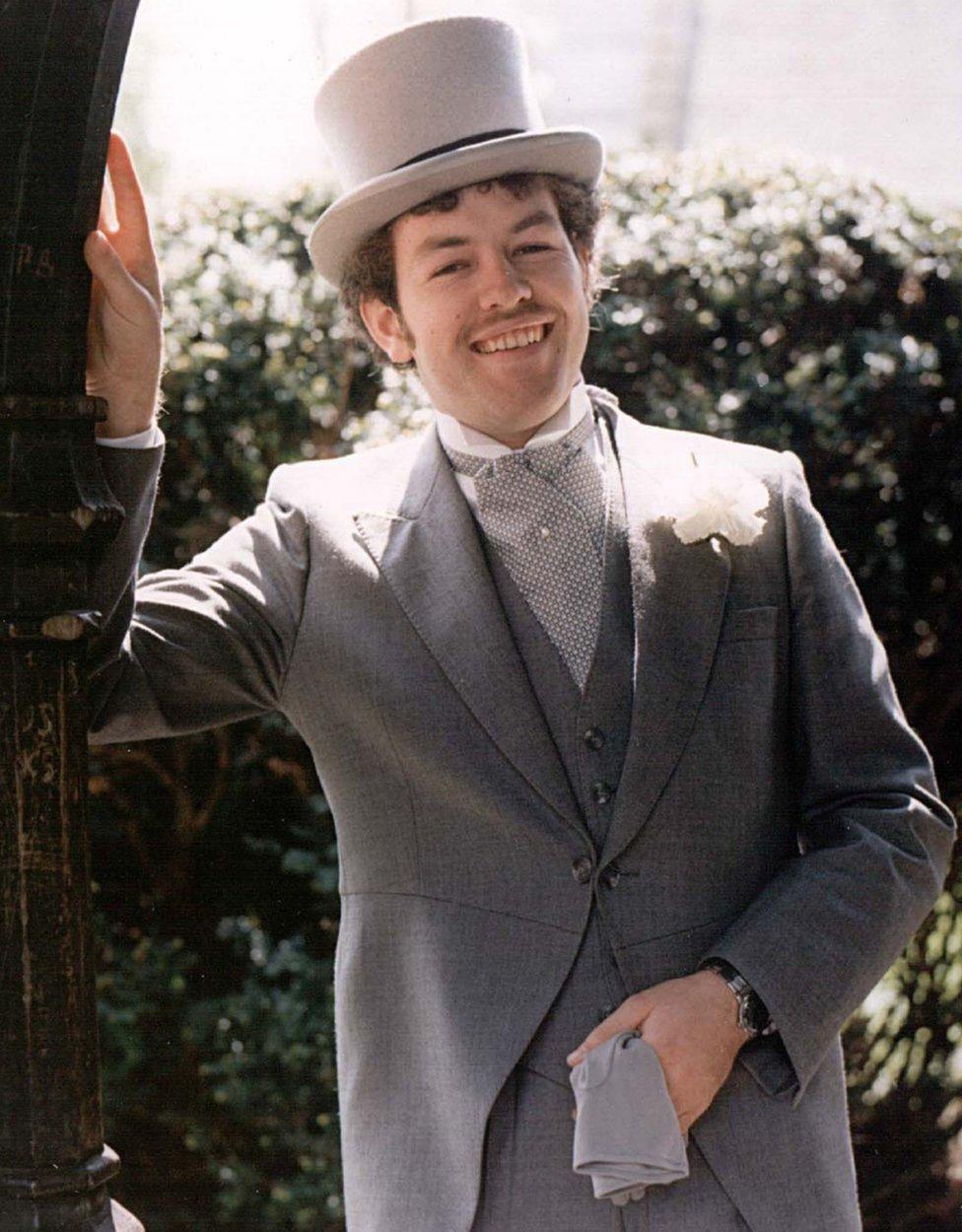
Colin Pitchfork was 23 years old and married with a baby when he murdered Lynda Mann
But, in the 28 years since, he has been described as a model prisoner who has educated himself to degree level and become an expert in transcribing music into Braille. He consequently had his 30-year minimum term reduced by two years.
Now aged 55, he has a parole hearing.
The panel, usually made up of three members, will consider a raft of paperwork and evidence of Pitchfork's conduct and progress through the prison system.
Part of the process involves a statistical risk assessment based on sex offenders' treatment programmes but Prof Kevin Browne, a forensic psychologist with the University of Nottingham, recently published a report condemning the process.
"The risk assessment tool used in prisons for sex offenders does not predict re-offending beyond chance and the parole board may as well go by the colour of their shirt," he said.

How DNA caught Colin Pitchfork
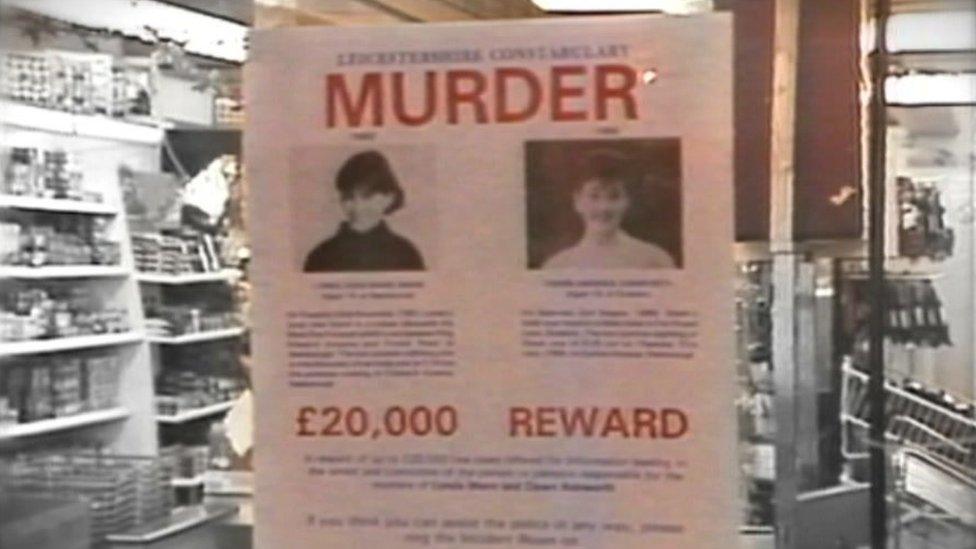
The police turned to The University of Leicester's Dr Alex Jeffreys for help in cracking the case.
With DNA profiling, originally used in paternity disputes, experts proved a 17-year-old boy's innocence before carrying out a mass screening of 5,000 men.
Even then, Pitchfork evaded justice by persuading a colleague to take the test for him, going so far as to replace his passport photograph.
But he was overheard boasting about the case in the pub and was eventually arrested. His DNA profile ultimately led to his guilty plea and 30-year jail term.

Added to this, Pitchfork is in a very small group of sex attackers who kill. In a study of more than 7,000 sex offenders, it was estimated only 3% murdered their victims, 1% of whom were children.
Prof Browne said this made it even harder to assess if Pitchfork's treatment had been a success because there was nothing to compare him to.
Added to that, he has spent 30 years in prison in which he may well have been fantasising as a way to occupy his mind. "There's no telling what that was about," Prof Browne said.
"Yes he has served his time but the basis for his release is 'is he still a risk to the community?' On balance, that's a difficult one to judge."
But judge it the parole board must.
A spokesman for the Ministry of Justice would not comment on Pitchfork's case but said the parole board was legally obliged to consider releasing a prisoner once their jail term was served.
'Focus on danger'
At this point, they would no longer be held in prison as a punishment and could only remain in prison if considered a risk to the public.
"Public protection is our top priority. We use a series of robust measures, including a comprehensive risk assessment, to ensure all offenders are safely managed in the community," he said.
If a prisoner on a life sentence was released, they would remain on licence and may be subject to restrictions, including banning from certain areas, and if these were breached they would be recalled to jail.
The parole board said it was "not legally permitted to consider whether the prisoner has been punished enough, instead it must focus solely on how dangerous the prisoner is".
It takes into account the nature of the offence, the prisoner's offending history and their progress in prison.
The board also considers victim statements, psychologist reports, probation and prison officer reports, and risk assessments.
Another option open to the panel is to begin Pitchfork's rehabilitation in an open prison.
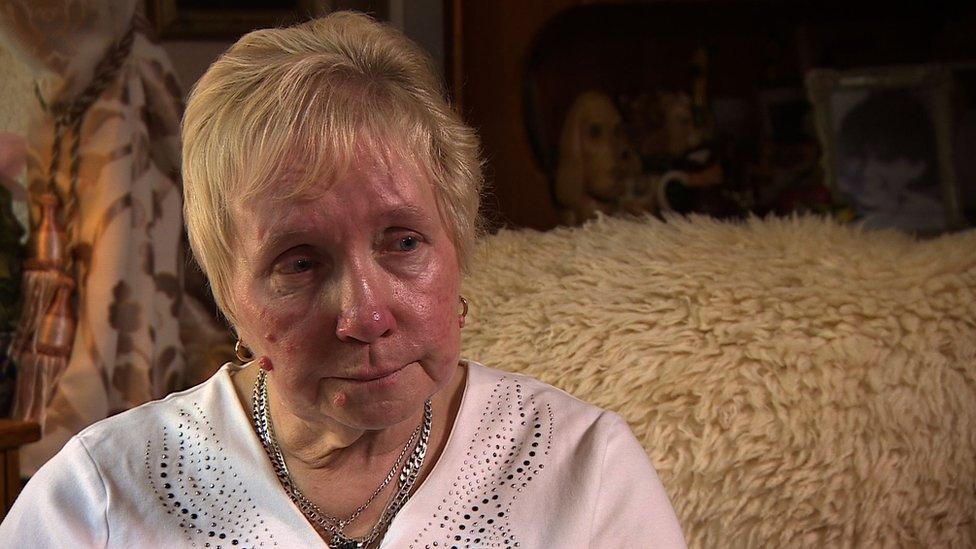
In a letter to the Parole Board, Kath Eastwood said the idea of her daughter's killer walking free "repulsed her"
There are thousands of people who believe he should be locked away for good and have signed a petition urging the panel to do just that.
The families of his victims have written heartfelt letters, pleading for him to be kept in jail.
Ms Eastwood, who moved her family because of the fear her daughter's murderer would strike again, said she was terrified at the thought Pitchfork could one day be free.
"He isn't a man, he can't be to do what he did," she said. "To have his baby boy in the back of his car, to stop his car and then kill my Lindy, get back into his car, and take the baby to bed after what he had done.
"For a man to act that way just after he had killed a girl - there's a missing link inside his head. There's something wrong permanently.
"There's no feeling there at all, no remorse. "
And she firmly believes he would do it again.
"His attacks were so horrific, so abnormal it's beyond description. People don't need to know exactly what he did - there's much more to it that will never come out in public."
The Parole Board will hold its hearing this month.
Watch Inside Out at 19:30 BST on Monday on BBC One in the East Midlands to see the full interview with Ms Eastwood.
- Published26 May 2015
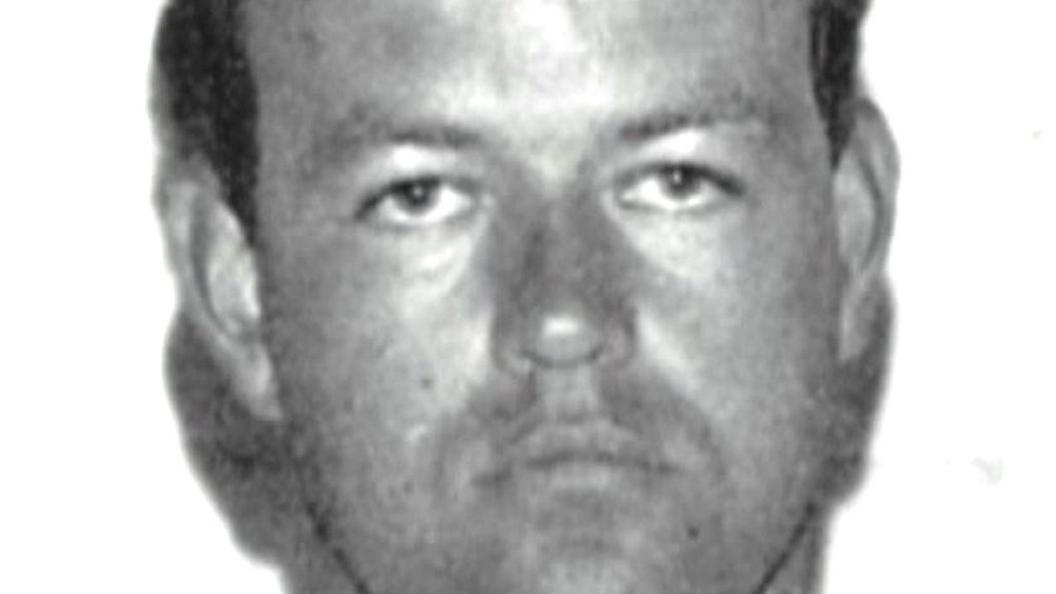
- Published1 May 2015
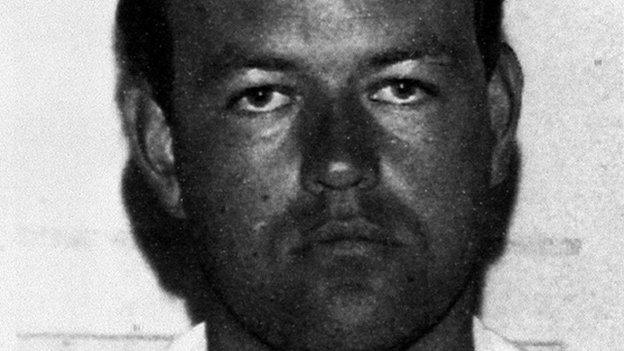
- Published27 April 2015
